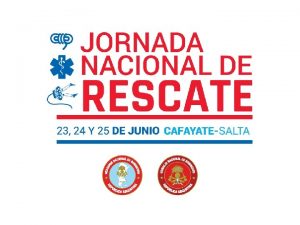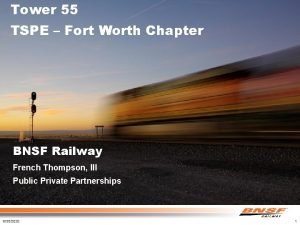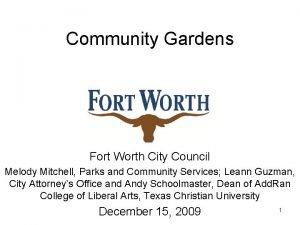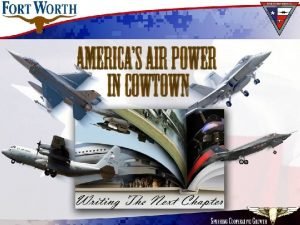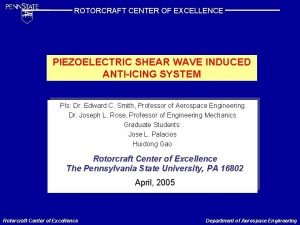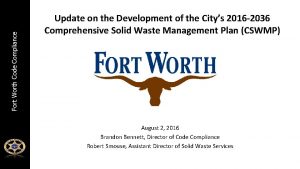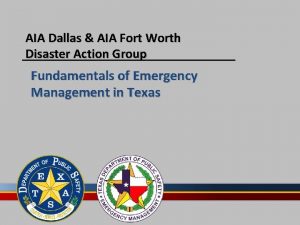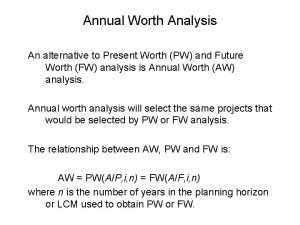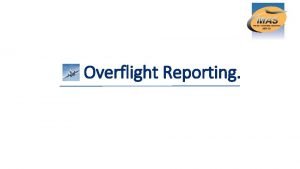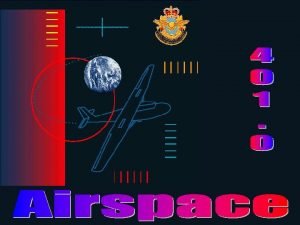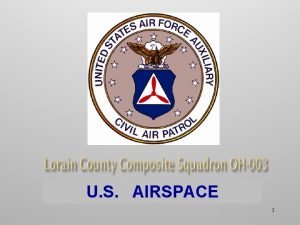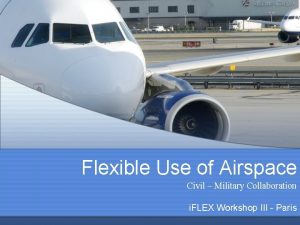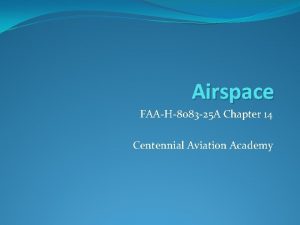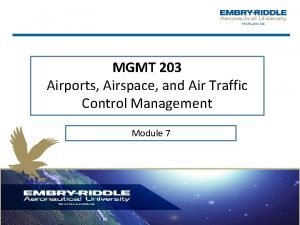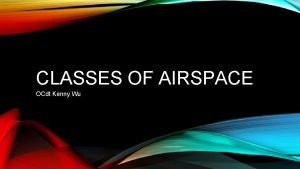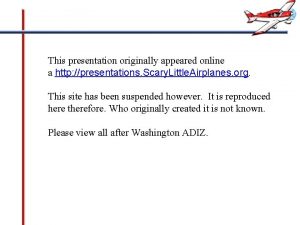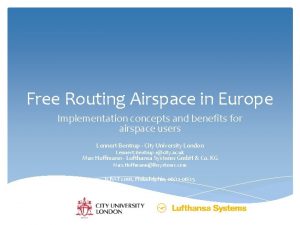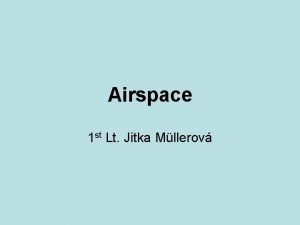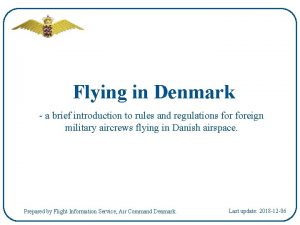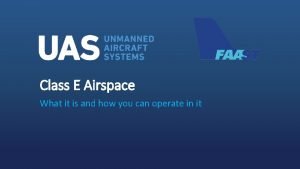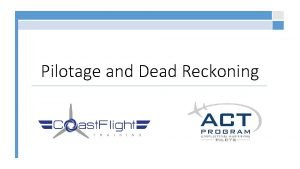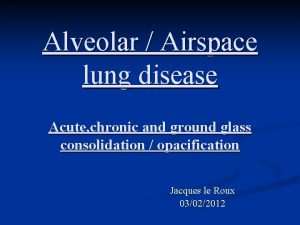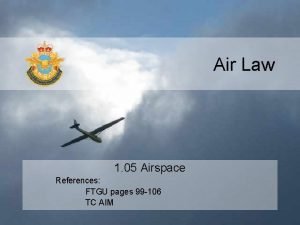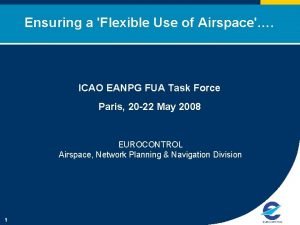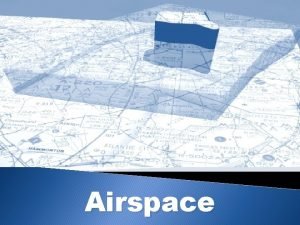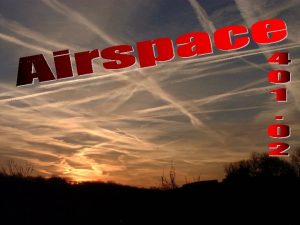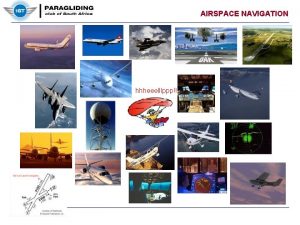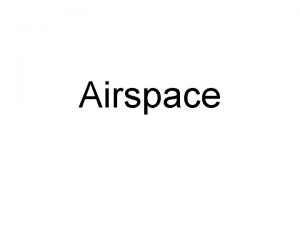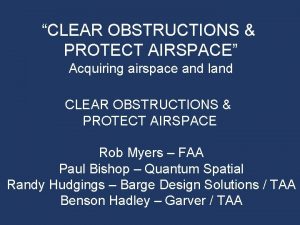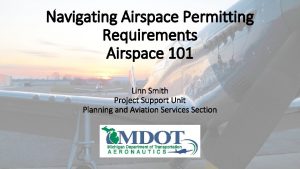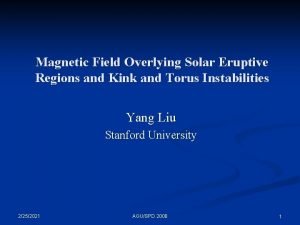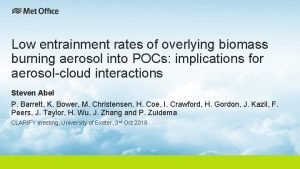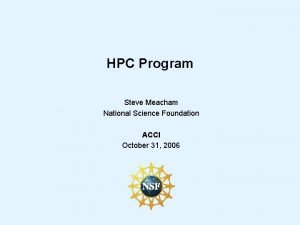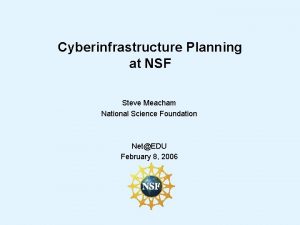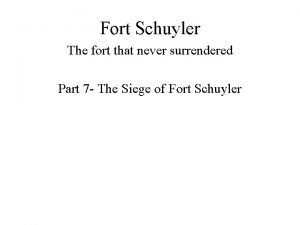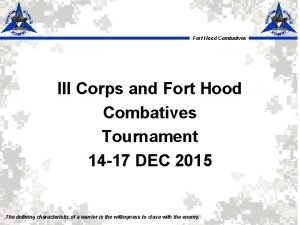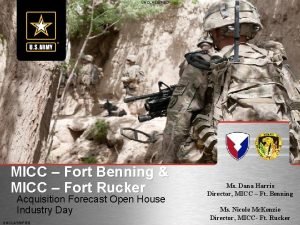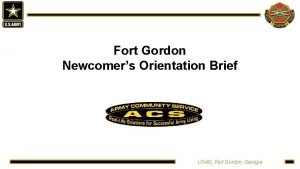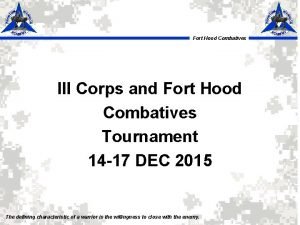3625 The airspace overlying Fort Worth Meacham is

































- Slides: 33

#3625. The airspace overlying Fort Worth Meacham is (fig 26, near #4 Computer testing supplement) A- Class B airspace to 10, 000 feet MSL. B- Class C airspace to 5, 000 feet MSL. C- Class D airspace to 3, 200 feet MSL. Aviation Seminars 1

Sorry that is Incorrect. Go Back and Try Again. Aviation Seminars 2

That’s Right!!! Next Question Aviation Seminars 3

#3126. What minimum pilot certification is required for operation within Class B airspace? A- Recreational Pilot Certificate. B- Private Pilot Certificate or Student Pilot Certificate with appropriate logbook endorsements. C- Private Pilot Certificate with an instrument rating. Aviation Seminars 4

Sorry that is Incorrect. Go Back and Try Again. Aviation Seminars 5

That’s Right!!! Next Question Aviation Seminars 6

#3629. The vertical limits of that portion of Class E airspace designated as a Federal Airway over Magee Airport (Fig 23 near #3) are A- 1, 200 feet AGL to 17, 999 feet MSL. B- 7, 500 feet MSL to 12, 500 feet MSL. C-7, 500 feet MSL to 17, 999 feet MSL. Aviation Seminars 7

Sorry that is Incorrect. Go Back and Try Again. Aviation Seminars 8

That’s Right!!! Next Question Aviation Seminars 9

#3622. Identify the airspace over Lowe Airport (Fig. 27 Southeast of #1). A- Class G airspace – surface up to but not including 18, 000 MSL. B- Class G airspace – surface up to but not including 1200 AGL, Class E airspace-1200 feet AGL up to but not including 18, 000 MSL. C- Class G airspace – surface up to but not including 700 feet MSL, Class E airspace 700 feet to 14, 500 feet 10 Aviation Seminars MSL.

Sorry that is Incorrect. Go Back and Try Again. Aviation Seminars 11

That’s Right!!! Next Question Aviation Seminars 12

#3620. The visibility and cloud clearance requirements to operate VFR during daylight hours over Sandpoint Airport (Fig 23 North of #1) at 1, 200 feet AGL are A- 1 mile and clear of clouds. B- 1 mile and 1, 000 feet above, 500 feet below, and 2, 000 feet horizontally from each cloud. C- 3 miles and 1, 000 feet above, 500 feet below, and 2, 000 feet horizontally from each cloud. Aviation Seminars 13

Sorry that is Incorrect. Go Back and Try Again. Aviation Seminars 14

That’s Right!!! Next Question Aviation Seminars 15

#3143. Outside controlled airspace, the minimum flight visibility requirement for VFR flight above 1, 200 feet AGL and below 10, 000 feet MSL during daylight hours is A- 1 mile. C- 5 miles. B- 3 miles. Aviation Seminars 16

Sorry that is Incorrect. Go Back and Try Again. Aviation Seminars 17

That’s Right!!! Next Question Aviation Seminars 18

#3139. The minimum distance from clouds required for VFR operations on an airway below 10, 000 feet is A- remain clear of clouds. B- 500 feet below, 1, 000 feet above, and 2, 000 feet horizontally. C- 500 feet above, 1, 000 feet below, and 2, 000 feet horizontally. 19 Aviation Seminars

Sorry that is Incorrect. Go Back and Try Again. Aviation Seminars 20

That’s Right!!! Next Question Aviation Seminars 21

#3149. The basic VFR weather minimums for operating an aircraft within Class D airspace are A- 500 – foot ceiling and 1 mile visibility. B- 1, 000 – foot ceiling and 3 miles visibility. C- clear of clouds and 2 miles visibility. Aviation Seminars 22

Sorry that is Incorrect. Go Back and Try Again. Aviation Seminars 23

That’s Right!!! Next Question Aviation Seminars 24

#3180. The responsibility for ensuring that an aircraft is maintained in an airworthy condition is primarily that of the A- pilot in command. B- owner or operator. C- mechanic who performs the work. Aviation Seminars 25

Sorry that is Incorrect. Go Back and Try Again. Aviation Seminars 26

That’s Right!!! Next Question Aviation Seminars 27

#3153. What are the minimum requirements for airplane operations under special VFR in Class D airspace at night? A- The airplane must be under radar surveillance at all times while in Class D airspace. B- The airplane must be equipped for IFR and with an altitude reporting transponder. C- The pilot must be instrument rated, and the airplane must be IFR equipped. Aviation Seminars 28

Sorry that is Incorrect. Go Back and Try Again. Aviation Seminars 29

That’s Right!!! Next Question Aviation Seminars 30

#3813. What ATC facility should the pilot contact to receive a special VFR departure clearance in Class D airspace? A- Automated Flight Service Station. B- Air Traffic Control Tower. C- Air Route Traffic Control Center Aviation Seminars 31

Sorry that is Incorrect. Go Back and Try Again. Aviation Seminars 32

That’s Right!!! Move on to the Next Section!!! Aviation Seminars 33
 Iram espacios confinados
Iram espacios confinados What are plutons that cause overlying rocks to bow upward
What are plutons that cause overlying rocks to bow upward Veux tu briser du péché le pouvoir
Veux tu briser du péché le pouvoir Il y a fort longtemps
Il y a fort longtemps French thompson bnsf
French thompson bnsf Karl travis obituary
Karl travis obituary Dallas midwife associates
Dallas midwife associates Fort worth community garden
Fort worth community garden Nas jrb pharmacy
Nas jrb pharmacy Shear excellence fort worth
Shear excellence fort worth City of fort worth code compliance
City of fort worth code compliance Aia fort worth
Aia fort worth Anything worth doing is not necessarily worth doing well
Anything worth doing is not necessarily worth doing well Annual worth
Annual worth Annual worth analysis
Annual worth analysis Mexican airspace
Mexican airspace Canadian domestic airspace
Canadian domestic airspace Class b airspace dimensions
Class b airspace dimensions Flexible use of airspace
Flexible use of airspace Airspace entry requirements
Airspace entry requirements Airspace zones
Airspace zones Class f advisory airspace
Class f advisory airspace Airspace design analysis sterling va
Airspace design analysis sterling va Airspace entry requirements
Airspace entry requirements Free route airspace europe
Free route airspace europe Airspace classes
Airspace classes Denmark airspace
Denmark airspace Airspace
Airspace Free route airspace
Free route airspace Dead reckoning and pilotage
Dead reckoning and pilotage Alveolar airspace disease
Alveolar airspace disease Types of airspace
Types of airspace Airspace
Airspace Free route airspace czech republic
Free route airspace czech republic
